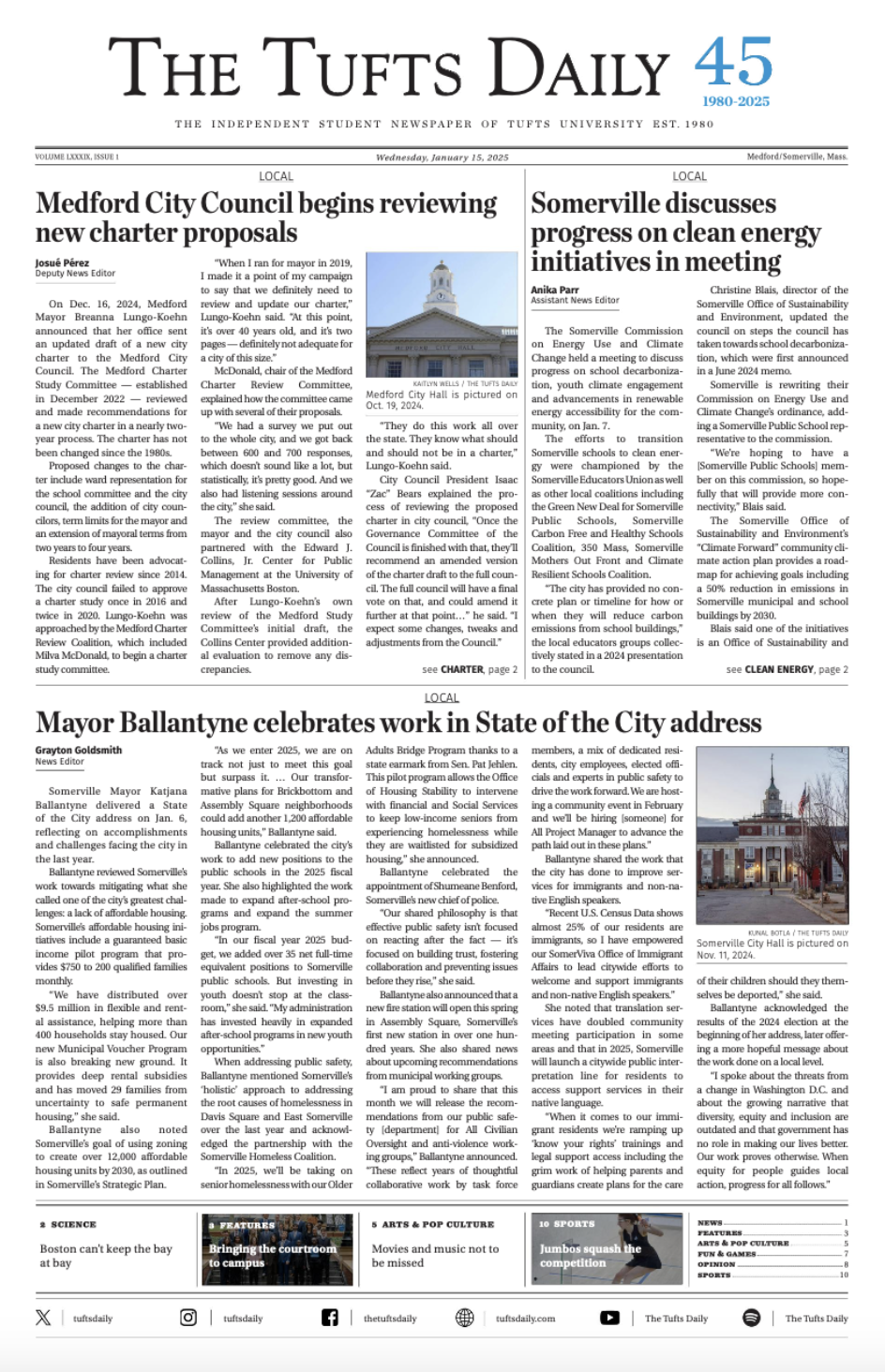Queen Noor of Jordan and two major religious icons last night repainted the concept of leadership to encompass not only the powerful but also community activists.
University President Lawrence Bacow spoke to a capacity crowd in Cohen Auditorium as he introduced the speakers at "Compassionate Leadership: Voices of Insight." Rabbi Irwin Kula, president of the National Jewish Center for Leadership and Learning, and Sakyong Jamgon Mipham Rinpoche, one of Tibet's most respected incarnate lamas, joined the queen.
"The world has never had a greater need for compassionate leadership," Bacow said, adding that the panelists set terrific examples.
The speakers' goal was to challenge the perception that a leader is "someone else [higher up] in the world.
"There are leaders in all different levels — not only at the U.N. or in governments, but also among women and children in conflict areas," Noor said. The queen went on to describe how hundreds of Bosnian and Serbian women came together in the Balkans after massacres to create communities of reconciliation.
Kula said that people should not look to remote leaders and ask, "Who is going to save me?" Instead, they should think of leadership on a local scale and ask how they can face up to problems, assume responsibility and fix them.
The rabbi emphasized that leadership can come from "the people who have been left husbandless and traumatized, because in that situation they are able to discover their own capabilities."
Jerry Murdock, the panel's moderator and the co-founder of Insight Venture Partners, steered the conversation toward some of today's global problems. The Sakyong reminded the audience that chaos and difficult times are not new issues, but he highlighted the need to approach the problems differently now.
"It becomes more obvious to me that we need leaders, but we ourselves need to exude qualities of strength and compassion," the Sakyong said.
The panelists also emphasized the value of dialogue. "There is no one that stupid that they are 100-percent wrong," the rabbi said. He lobbied for audience members to converse with people they despise.
To have an open vision, people need to be more sympathetic, the rabbi said. "If you really have compassion, you'd be able to see the entire story, every detail and every cause and effect," he continued, knowing that in viewing the whole picture we can create greater understanding and reduce violence.
The queen added that the media need to embrace this concept because they are currently creating global divisions. The United States embodies a sense that "American values and policies are there to correct the rest of the world — not to listen and hear the whole story, but to dictate and impose their rules," she said. To loud applause, the queen added that these policies have caused people to lose compassion and connection to other cultures.
Expanding on this theme, the panelists reiterated the importance of voting. "Everyone must engage. It is a real choice this year and the rest of the world is looking with more interest than ever before," the queen said.
Audience members appreciated the panel's fresh perspectives. "I took more out of that lecture than I ever expected to. Just to see world examples and an honest opinion about things that are so hard to explain is great," sophomore Hisham Bechi said.
"This is why I'm at college, to be exposed to this type of thing," freshman Marysa Sheren said.





